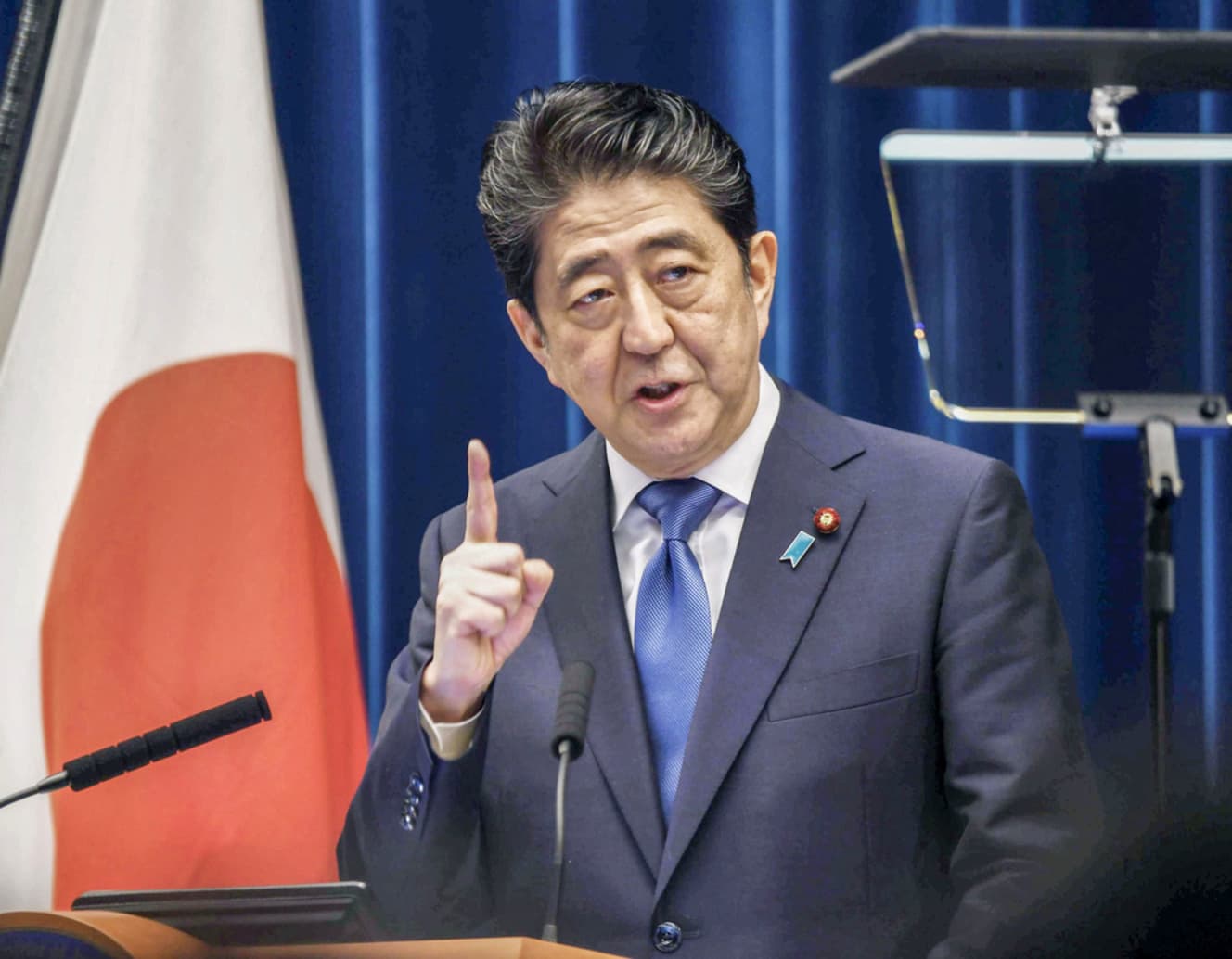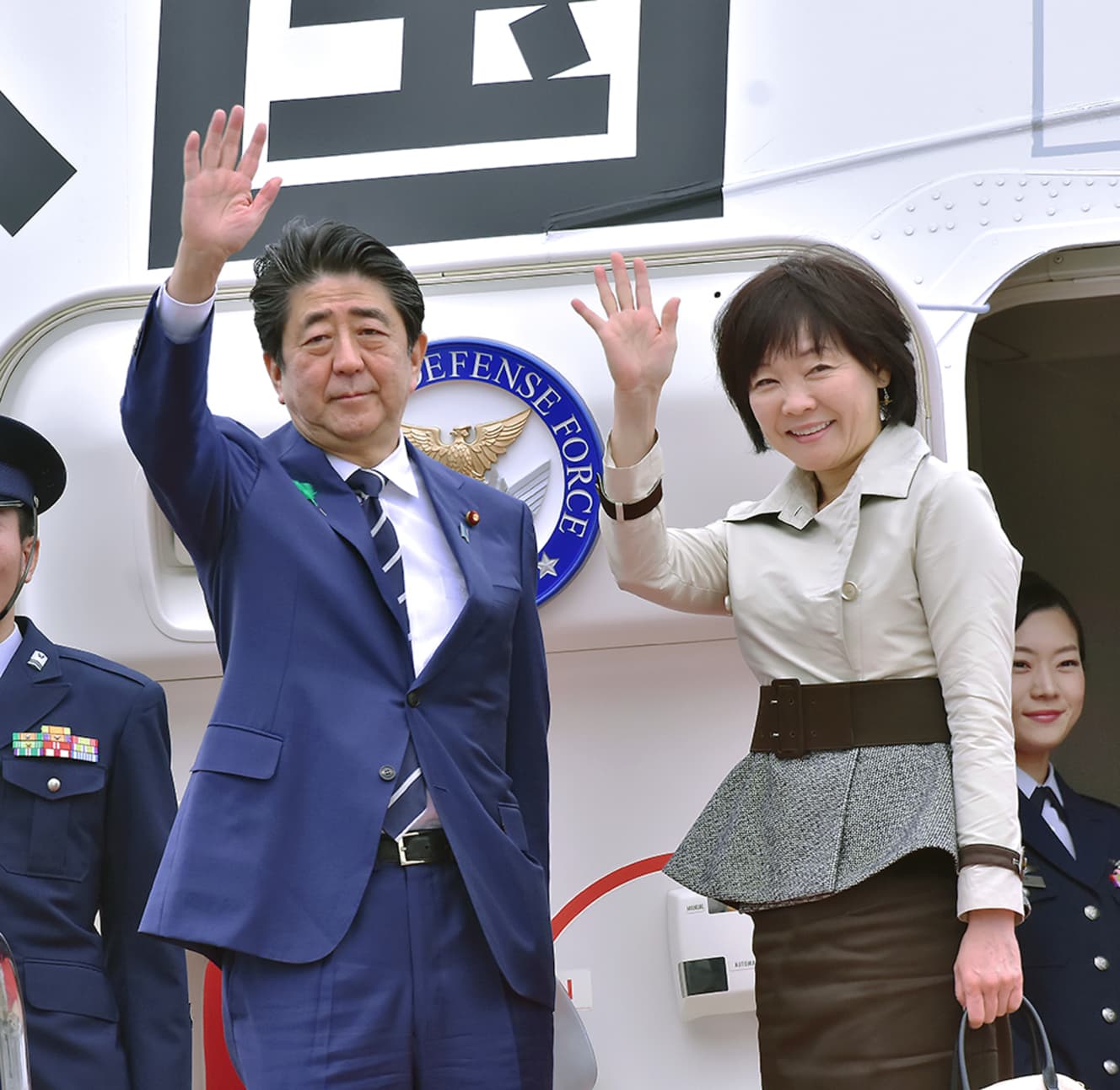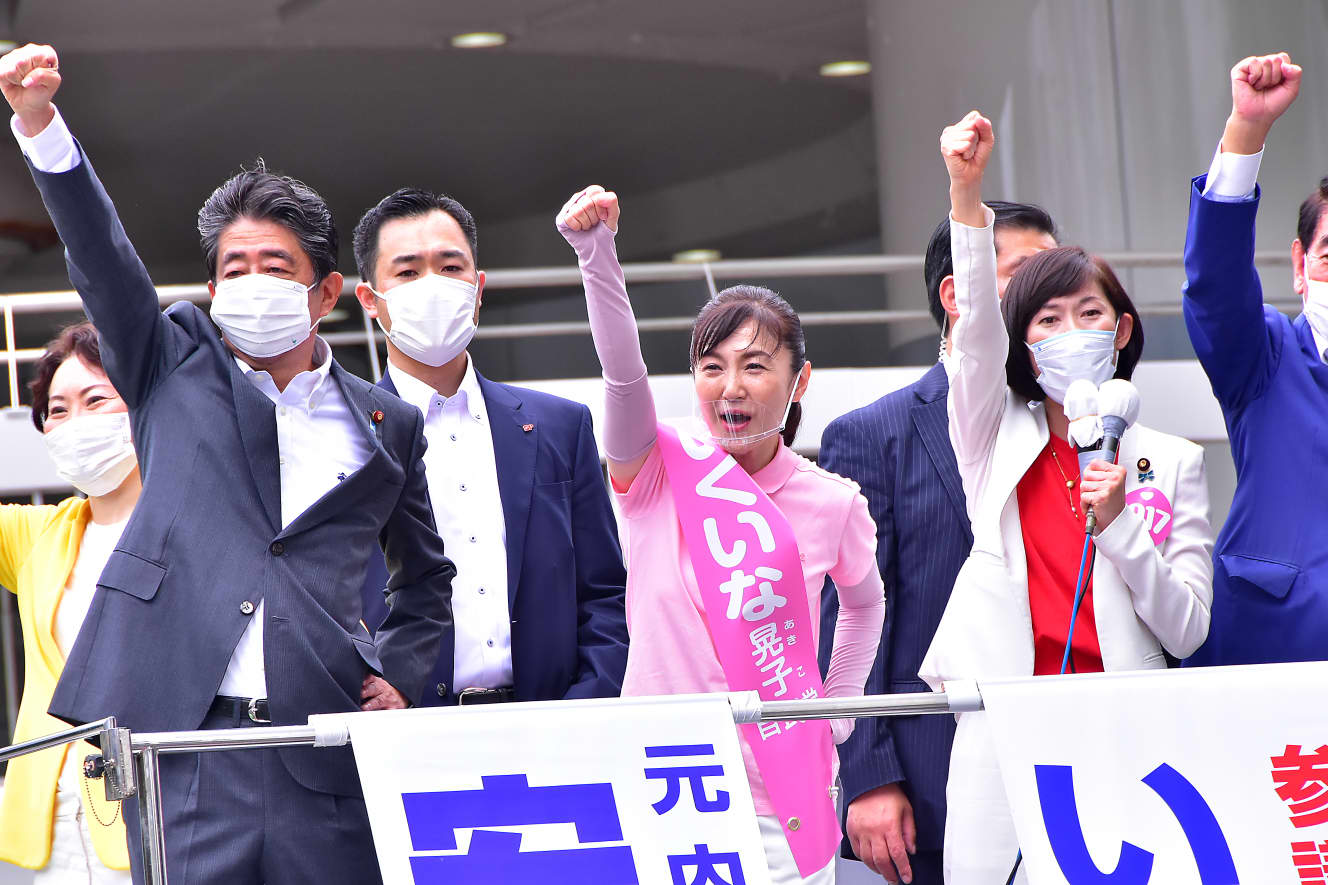The reporter who accused Kyoto Shimbun’s “empress” is “the man who spoke out at PM Abe’s press conference.

A working reporter pursues the criminal responsibility of the management family. It was the first time in a long time that a news item was reported that struck a chord in my heart, saying, “It is rare to find a reporter with a backbone nowadays.
At the end of June, two Kyoto Shimbun reporters filed a criminal complaint with the Kyoto District Public Prosecutors Office, alleging that Kyoto Shimbun Holdings (HD), which owns Kyoto Shimbun, illegally paid approximately 1.9 billion yen over a 34-year period to former advisor Hiroko Shiraishi, a member of the former owner’s family. The reporter, who is increasingly angry at the Shiraishi family, which is still a major shareholder, said, “As a news organization, we can’t just let it go. If no one was going to press charges, I had no choice but to do it on my own.
We can only answer questions that are designed to be answered.”
One of the reporters, Toshihiro Hibino, had “snapped” at then Prime Minister Shinzo Abe’s press conference in March 2020 when he was editor-in-chief of Tokyo when the spread of the new coronavirus was rapidly escalating. When Prime Minister Abe finished replying to questions that had been arranged in advance by the so-called major media, including national newspapers and NHK, and the Prime Minister’s Office tried to end the press conference without responding to other questions, Mr. Hibino raised his voice, saying, “Can you only answer questions that have been set up? Hibino was one of the people who triggered the change in the way the prime minister’s press conference was conducted.
Journalist Yoichiro Tateiwa, who has known Mr. Hibino for more than 15 years, stated, “A good argument is valued.
He is a man who values good arguments, but he is not an outspoken person. I have the impression that he has crossed the Rubicon River with this accusation.
He had a clear reason for raising his voice. On February 29, 2020, prior to the press conference, at the same emergency press conference on the new Corona, freelance journalist Shoko Egawa asked Prime Minister Abe if he had any more questions, but he did not respond to her request and ended the press conference. On March 2, a member of the House of Councillors’ Budget Committee, Renho of the Constitutional Democratic Party of Japan, asked a question about this matter. When the same thing was attempted again at an emergency press conference about two weeks later, Hibino raised his voice. Mr. Tateiwa continued, “The world was in turmoil over Corona.
The most important press conference of the administration was held at a time when the world was in turmoil due to the Corona disaster, and yet the prime minister read the answers to the questions he had prepared, without any direct and direct questioning. I believe that Mr. Hibino’s anger stemming from his awareness of this issue naturally manifested itself in his actions.
The actions he took this time will not improve Mr. Hibino’s position, as he will be seen as “a guy who did something unnecessary” according to the logic of the organization. Still, I think the reason he voiced his anger was because he felt that the news media should not overlook something strange that was happening within his own organization.
As I watched the series of events, I was reminded of Mrs. Katharine Graham, the owner of the Washington Post, whose investigative reporting of the Watergate scandal 50 years ago led to the resignation of then U.S. President Richard Nixon.
On June 17, 1972, there was a break-in at the Democratic National Committee headquarters, which was housed in the Watergate Building in Washington, D.C. Bob Woodward and Carl Burstein of the Post discovered that it was not just a theft, but an attempt to illegally gather information by planting listening devices and other equipment. The perpetrators were officials from the Central Intelligence Agency (CIA) and the Federal Bureau of Investigation (FBI), and they elicited testimony that the Nixon Re-election Commission was deeply involved, leading to the resignation of the first sitting president since the founding of the United States.

Both journalists became the heroes of the times and appeared on TV after securing world-class scoops. It is not surprising that they were at the height of their success, but a powerful punch came from an unexpected source.
A letter from Mrs. Graham, the owner of the company, read as follows.
She was on TV, grinning and looking very pompous. Not the devil’s advocate.”
He could only be ashamed of himself for having forced the president to resign, for having been praised by those around him, and for being elated at having become one of the best journalists. Woodward reflects in a special feature on his old home, which coincides with the half-century since the Watergate scandal this past June.
It was advice I will never forget. He continues to write at the forefront of his field at the age of 79, always keeping in mind the admonition to remain humble.
It was with her support that I was able to get the scoop on the Watergate scandal.
The Post was acquired by her father, financier Eugene Mayer, the first president of the World Bank, but her husband died suddenly, and she took over to protect the family business.
Although she became the first female owner and publisher of a major U.S. newspaper, people around her were cold and harsh, saying that she could not do anything and would probably destroy the company. The Post, which was only a regional newspaper, found itself in a difficult business situation.
A year before the Watergate scandal, the Post’s rival newspaper, the New York Times, broke the story of the “Pentagon Papers,” classified documents on the Vietnam War.
In the midst of this crisis, the Post’s reporters hold their ground and try to obtain and report almost the entire text of the classified documents, but they are pressured by executives who believe that if they provoke the Nixon administration, they will not be able to obtain the bank’s support. When asked to make a decision, Mrs. Graham hesitates and gives the go-ahead for the documents to go to print.
The young reporter, who had seen the back of Mrs. Graham’s determination to be a newspaper personality rather than a mere celebrity, crawled around on the ground to get to the bottom of the Watergate scandal.
Woodward says, “Despite the hardships, there was a certain leeway at the Post. The paper had an open atmosphere within the company, and the reporters were able to report freely and openly.
Although the Shiraishi family and the Graham family have different historical backgrounds in Japan and the U.S., the way the management family approaches newspaper production is too different.
The Kyoto Shimbun has made its presence felt as a leading regional newspaper. The overlap between the labor union and its reporting stance on the Watergate scandal may provide an opportunity to consider the state of the press and management. Whether this accusation will lead to a path toward revitalization is not a matter for a single local newspaper.
On the 50th anniversary of the Watergate scandal, Kyoto Shimbun journalists stood up to pursue the former management. For the newspaper industry, which is being pushed to the brink, this is no stranger matter.


